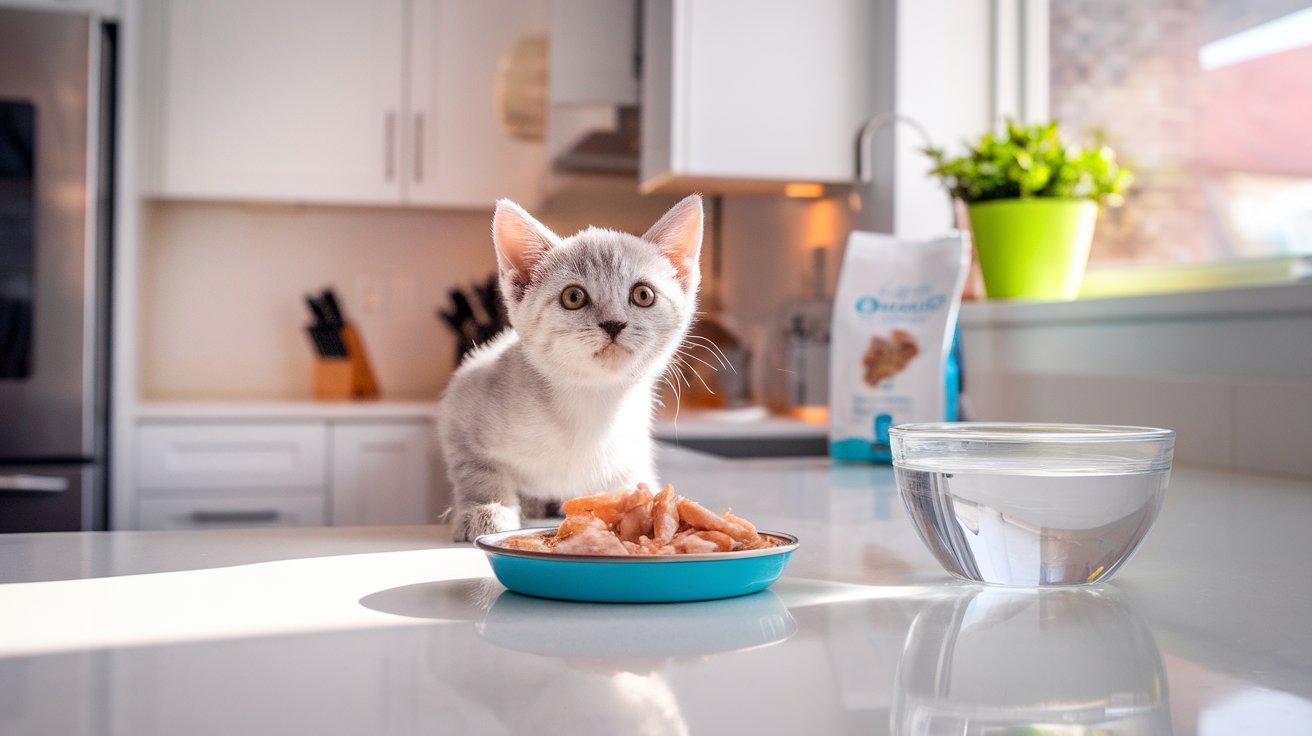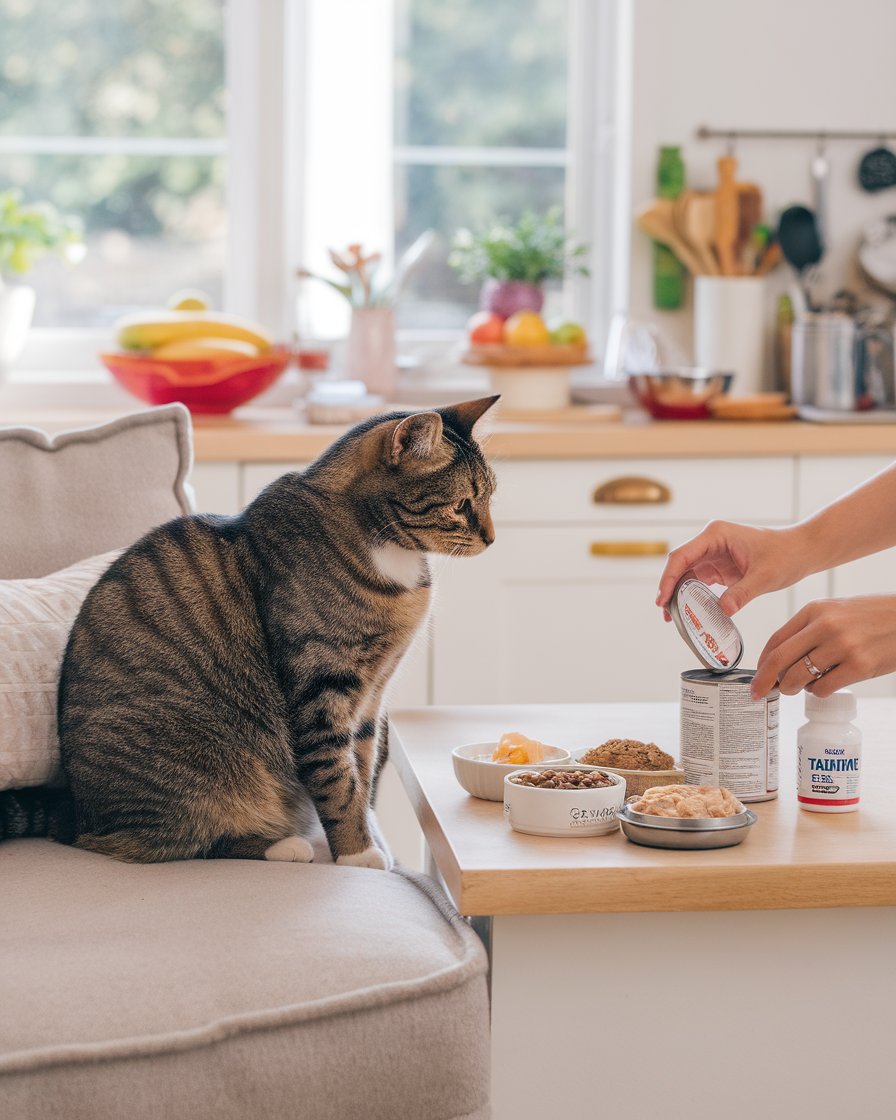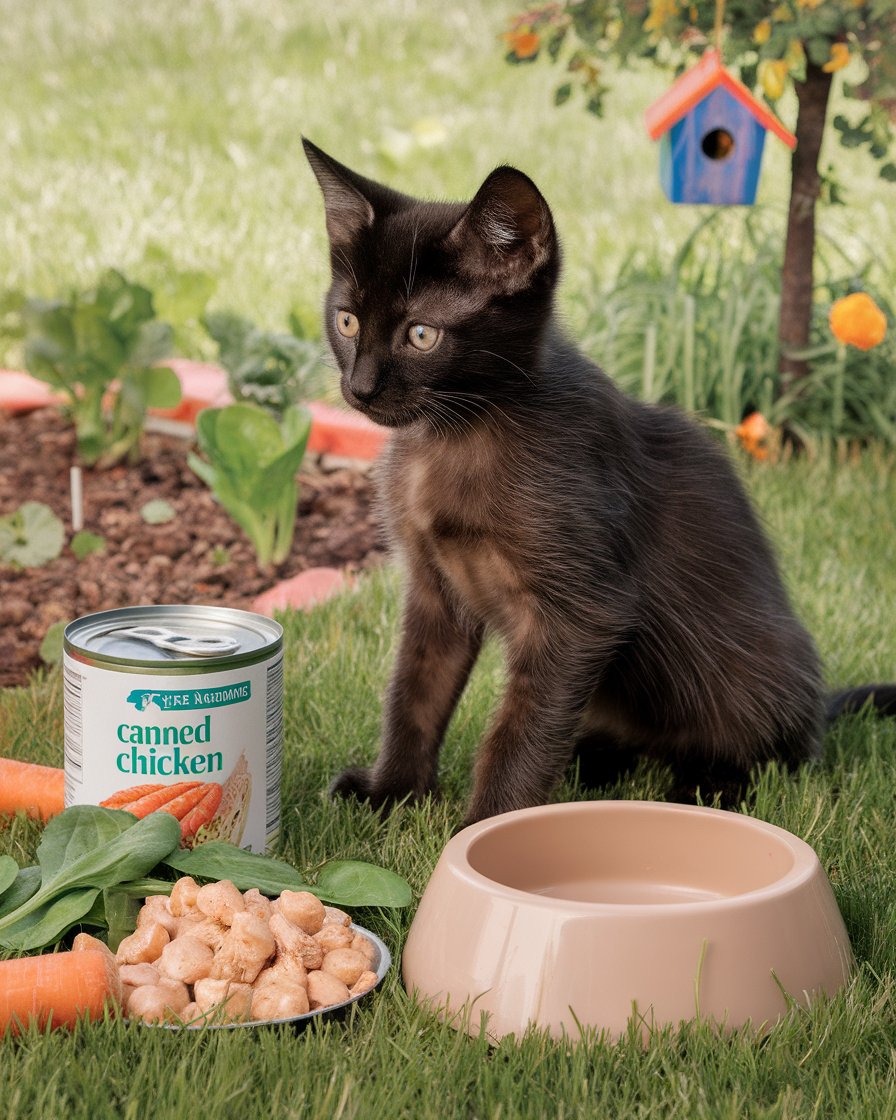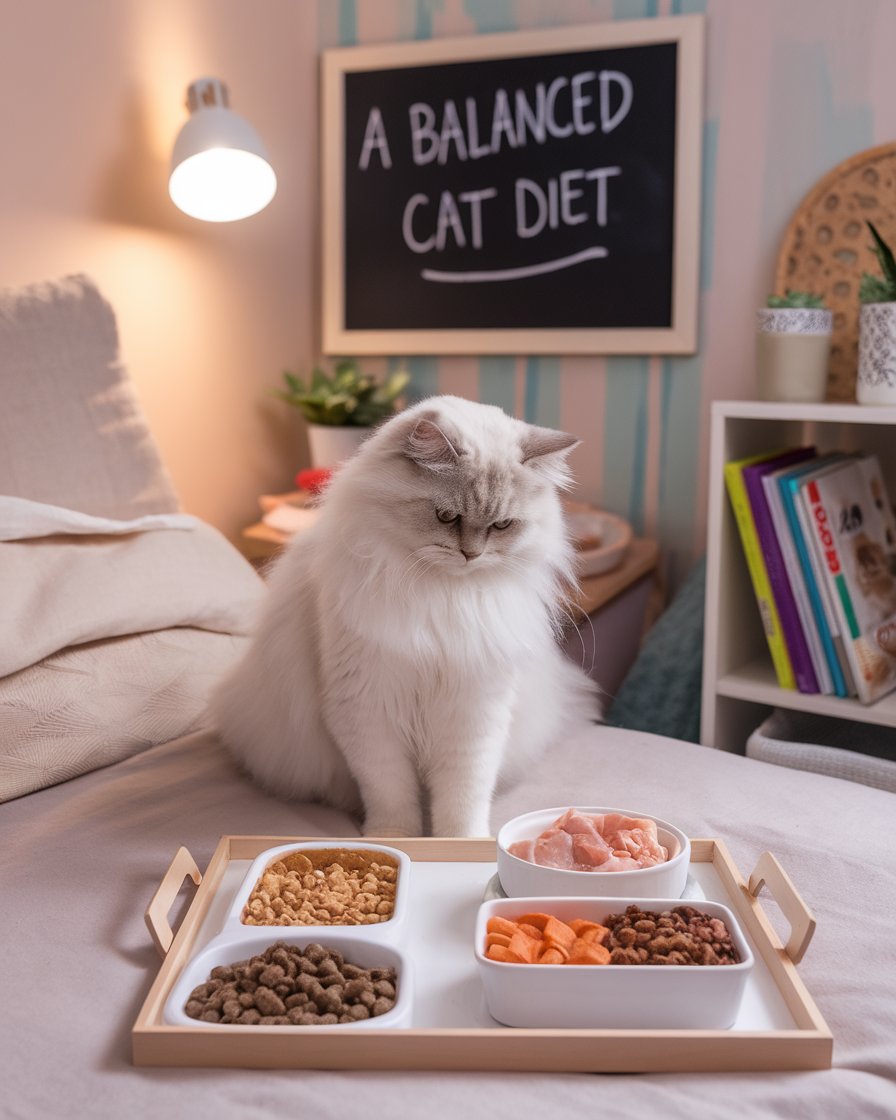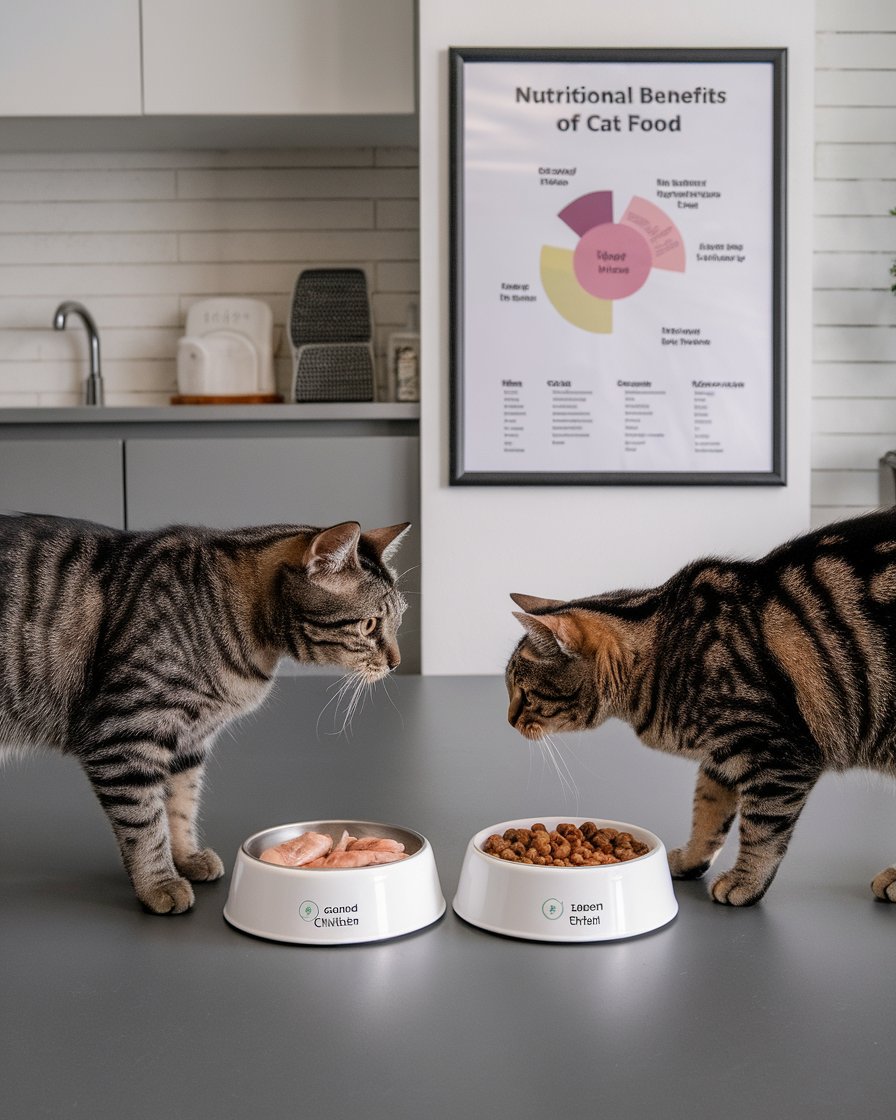Introduction
Canned chicken can be a tempting option for many cat owners looking to treat their furry companions. Cats, being obligate carnivores, require meat to survive, and canned chicken offers a rich source of protein. However, it’s essential to understand the differences between canned chicken and traditional cat food. While cats love chicken, relying solely on canned chicken may not provide all the nutrients like taurine and amino acids that are necessary for their health.
Feeding canned chicken to your cat can occasionally supplement their regular diet, but moderation is key. Too much canned chicken could lead to nutritional imbalances or even issues with the digestive system. Cats require a balanced diet of wet cat food or dry food to meet their nutritional needs and ensure a healthy weight. Before switching up your cat’s meals, always consider their overall health and consult a veterinarian.
Key Takeaways
- Canned chicken provides a good source of protein for cats, but it lacks essential nutrients like taurine.
- Cats are obligate carnivores and require a balanced diet that includes wet cat food or dry food.
- Feeding canned chicken should be done in moderation to avoid nutritional imbalances or digestive issues.
- Some canned chicken products contain preservatives or sodium, which can be harmful to cats in large quantities.
- Regular cat food is specially formulated to meet all the nutritional needs that canned chicken cannot provide.
- Consulting a veterinarian is crucial when making significant changes to your cat’s diet.
Is Canned Chicken Good for Cats? Understanding the Nutritional Value
Canned chicken can be a high-protein treat for cats, but it’s important to consider its overall nutritional value. Cats are carnivores, meaning they require meat as part of a cat’s diet to meet their nutritional needs. Canned chicken contains protein from canned chicken, which helps maintain a healthy coat and muscle mass. However, it might lack essential nutrients like taurine and vitamins that are found in canned food. Feeding canned chicken to your cat as an occasional treat is fine, but it shouldn’t replace their regular diet. Canned chicken breast may also contain preservatives and sodium, which aren’t ideal for cats. Always ensure your feline gets moisture-rich wet cat food or balanced dry cat food for overall health and well-being. Avoid giving canned chicken too frequently, as too much could lead to urinary tract issues or nutritional imbalances.
Best Practices for Feeding Cats Canned Chicken
1. Balance Canned Chicken with Complete Cat Food
While canned chicken is a good source of protein, it does not offer all the essential nutrients like taurine and vitamins that cats require a diet to maintain. Use it as a supplement alongside wet cat food or dry cat food to ensure your cat’s nutritional needs are fully met.
2. Monitor for High Sodium and Preservatives
Some canned chicken products contain high levels of sodium and preservatives, which can be toxic for cats if consumed in large amounts. Always choose options without added salt or preservatives.
3. Keep Portions in Check to Avoid Health Issues
Feeding too much canned chicken can lead to urinary tract issues, obesity, or other health problems. Limit it to no more than 10% of your cat’s daily caloric intake and avoid making it the main part of their diet.
Canned Chicken as a Protein Source for Cats
Canned chicken can be a valuable protein source for cats, helping to maintain muscle mass and energy levels. Since cats require high protein in their diet, canned chicken can be a good occasional treat. However, relying solely on canned chicken may not provide all the necessary nutrients, like taurine and essential amino acids, which are crucial for their overall health. It’s important to remember that while canned chicken offers protein, it might not meet all the specific dietary needs of your cat. To ensure they get a balanced diet, canned chicken should only supplement their regular cat food, which is specially formulated to provide complete nutrition.
Potential Risks of Feeding Canned Chicken to Cats
While canned chicken can be a tasty addition to your cat’s diet, there are potential risks. Some canned chicken products contain preservatives and sodium, which could be harmful to your cat if consumed in large quantities. Too much salt in their diet could lead to digestive or urinary tract issues. Additionally, feeding canned chicken too often might result in your cat missing out on other vital nutrients found in regular cat food. To avoid these risks, it’s essential to limit canned chicken as a treat rather than a staple and ensure it’s plain without any added ingredients.
Can Cats Eat Canned Chicken Safely? What You Need to Know About Their Dietary Needs
Cats can eat canned chicken safely in moderation, but it’s crucial to remember their dietary needs. Since cats are obligate carnivores, they need meat to survive, and canned chicken provides a source of protein. However, feeding canned chicken for cats regularly may not provide the taurine, essential amino acids, and vitamins they need for optimal health. If you decide to feed your cat canned chicken, ensure it’s plain with no added preservatives or spices. Too much sodium or seasoning can harm your cat’s digestive system. Consulting with a veterinarian can help you make sure canned chicken fits into your cat’s balanced diet without replacing their essential cat food.
List of Safe Practices When Feeding Canned Chicken to Cats
1. Limit Canned Chicken as an Occasional Treat
Canned chicken can be a great source of protein for cats, but it shouldn’t replace their regular diet. While cats are obligate carnivores, they need a balanced diet that includes essential nutrients like taurine, vitamins, and minerals, which canned chicken alone doesn’t provide. It’s best to offer canned chicken as a treat, not a primary food source.
2. Choose Low-Sodium and Additive-Free Options
When selecting canned chicken, opt for varieties that are plain, packed in water, and free of salt or seasoning. Sodium and preservatives can be harmful to your cat’s health, potentially leading to digestive issues or even kidney problems over time.
3. Watch for Allergic Reactions or Sensitivities
Some cats may have food sensitivities or develop allergies to canned chicken. Monitor for signs such as vomiting, diarrhea, or itching. If any of these occur, discontinue feeding and consult a veterinarian.
Why Moderation is Key When Feeding Cats Canned Chicken
Moderation is essential when feeding your cat canned chicken. While cats love canned meat, it doesn’t contain all the nutrients necessary for a complete diet. Cats require taurine, vitamins, and other essential nutrients that aren’t always present in canned chicken. Feeding canned chicken for cats occasionally won’t harm your feline friend, but it’s not a long-term substitute for cat food designed to meet their unique dietary needs. Regular cat food, whether dry or wet, ensures that your cat’s nutritional balance is maintained. Make sure to consult a veterinarian before introducing any significant dietary changes.
Nutritional Gaps in Canned Chicken for Cats
Canned chicken can be a great source of protein, but it may not fulfill all the nutritional needs of your cat. Taurine, an amino acid crucial for a cat’s heart and eye health, is often absent in plain canned chicken. Cats also need a variety of vitamins and minerals, which are typically found in formulated cat food but not in canned meat. Relying too heavily on canned chicken might cause nutritional deficiencies that can affect your cat’s overall well-being. To keep your cat healthy, canned chicken should be part of a broader, well-rounded diet that includes wet or dry cat food rich in essential nutrients.
Feeding Your Cat Canned Chicken: Best Practices for a Balanced Diet
When feeding your cat canned chicken, it’s essential to keep their overall nutritional needs in mind. Canned chicken can be a good protein source, but it should only be a small part of your cat’s diet. Cats require a diet that includes wet or dry cat food rich in taurine, vitamins, and minerals. Moisture-rich cooked chicken can be helpful, especially for cats who need extra hydration, but it shouldn’t be their only protein source. A diet heavy on canned chicken can cause urinary tract issues or lack nutrients that are crucial for cats. Always mix canned chicken with other nutritious food to ensure your furry friend remains happy and healthy. Avoid overfeeding human food like canned chicken, as it might lead to nutritional value altered or other issues that aren’t good for your cat’s health.
Incorporating Canned Chicken into a Balanced Diet
Incorporating canned chicken into your cat’s diet can add variety and excitement, but it’s essential to do so thoughtfully. Cats need a balanced diet that includes protein, taurine, and other vital nutrients found in wet or dry cat food. While canned chicken provides some protein and moisture content, it lacks the vitamins and minerals your cat needs. Feeding canned chicken as an occasional treat works best when combined with nutritionally complete cat food. This ensures your cat stays healthy and avoids any dietary gaps that could affect their overall well-being. Always provide a mix of foods that meet your cat’s dietary requirements.
Avoiding Overfeeding Canned Chicken to Your Cat
Overfeeding canned chicken to your cat may lead to nutritional imbalances and health issues. Since canned chicken lacks some essential nutrients like taurine and other amino acids, feeding it in excess could cause problems over time. Cats need a carefully balanced diet that supports their growth, energy, and overall health. Too much canned chicken can result in digestive issues or even urinary tract problems. To avoid these risks, it’s important to use canned chicken sparingly as a treat, alongside high-quality cat food that meets all of your cat’s nutritional needs.
“Protein is essential for cats, so incorporating canned chicken into their diet can be a good way to ensure they’re getting the nutrients they need. Just be sure to balance their diet with other essential nutrients as well.” — Professional Cat Nutritionist (Vet Explains Pets)
Canned Chicken vs. Regular Cat Food: Which is Better for Your Feline?
Comparing canned chicken to regular cat food, it’s clear that while cats love the taste of chicken, it doesn’t meet all their dietary requirements. Canned chicken might seem like a tasty option, but regular cat food is formulated to include taurine, essential amino acids, and other nutrients cats need. Cats are obligate carnivores, and while they need meat, they also require specific vitamins that canned chicken alone may lack. Feeding your cat canned chicken as an occasional treat is fine, but their daily diet should consist of wet cat food or dry cat food designed for felines. Regular cat food ensures your cat gets a balanced diet, promoting overall health.
The Importance of Taurine in Cat Food
Taurine is an essential amino acid that cats need for their heart, vision, and reproductive health. Unlike canned chicken, regular cat food is formulated to include taurine in the right amounts. Cats are obligate carnivores, meaning they require animal-based nutrients to stay healthy, and taurine is one of the most crucial ones. Without taurine, cats can suffer from serious health issues such as heart disease or blindness. While canned chicken may provide protein, it doesn’t contain taurine, which is why it’s vital to ensure your cat’s regular diet includes specially formulated cat food to meet all their needs.
Why Regular Cat Food Offers Complete Nutrition
Regular cat food is designed to provide a complete nutritional profile for your cat. Whether it’s dry cat food or wet cat food, these products are balanced with the right amounts of protein, taurine, vitamins, and minerals that cats need to thrive. In comparison, canned chicken lacks many of these essential nutrients and should only be used as a supplement or occasional treat. Feeding your cat regular cat food ensures they get the proper nourishment to maintain their energy levels, digestive health, and immune system. Choosing the right cat food is essential to keeping your feline friend happy and healthy.
[lasso rel=”amazon-39″ id=”5473″]
Conclusion
Incorporating canned chicken into your cat’s diet can be beneficial, but it should always be done with care. Cats are obligate carnivores, meaning they require protein and essential nutrients like taurine to thrive. While canned chicken provides a rich source of protein, it lacks certain key nutrients that are found in balanced cat food. It’s best to treat canned chicken as an occasional supplement rather than a replacement for their primary diet of wet cat food or dry food.
Before adding canned chicken to your cat’s meals, ensure it’s plain and free of preservatives or excessive sodium, which can be harmful. Consulting a veterinarian will help you ensure that your cat’s dietary needs are being met. Maintaining a balanced diet is crucial for keeping your kitten or adult cat healthy, happy, and at a proper weight while avoiding potential issues such as urinary tract problems.

